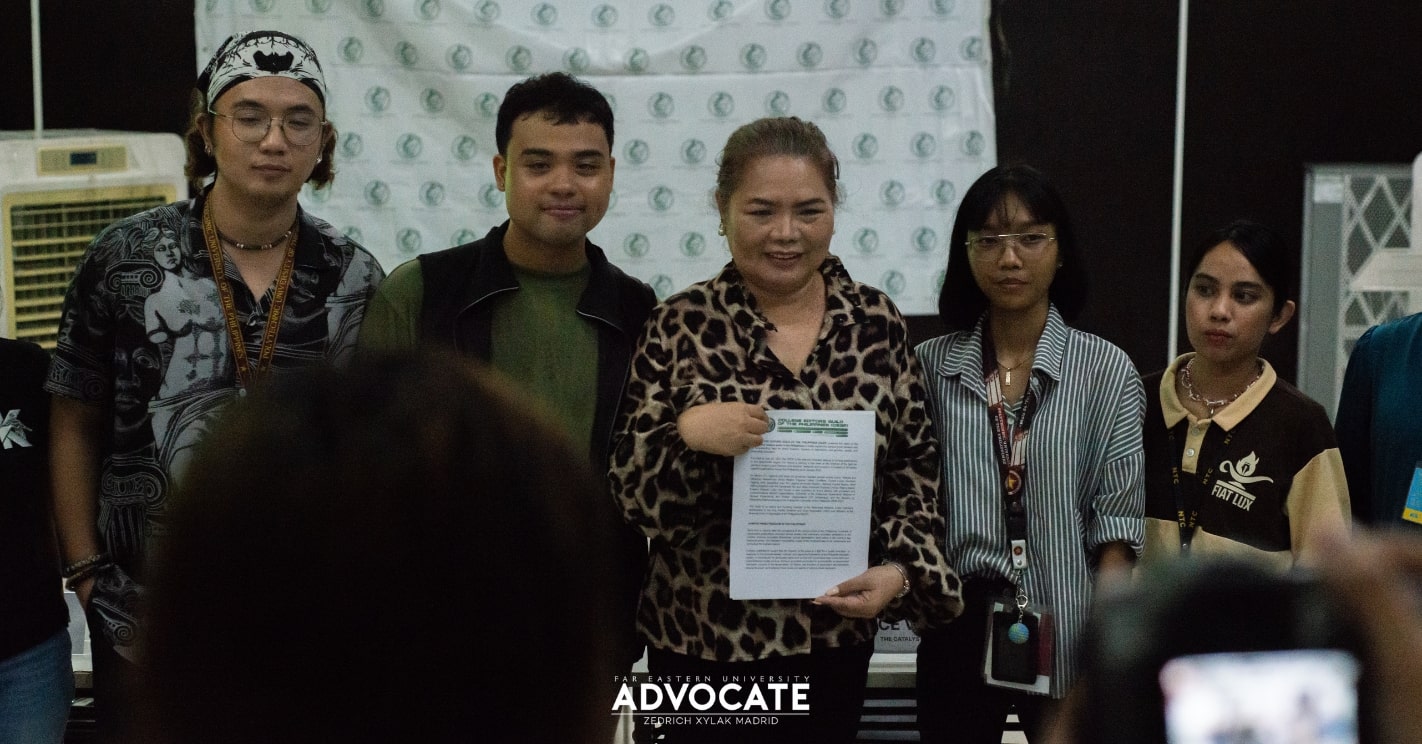
FEU to modify academic integrity policy following AI innovation
- March 22, 2024 13:29
FEU Advocate
January 20, 2023 09:02

By Beatrice Diane Bartolome
I’ve recently come across a peculiar discovery—a discovery that bloomed a rough tenderness in my chest and incoherent ramblings scrawled on crumpled paper. Sayang in Malay means “love,” but in Filipino, it is defined as “regretful loss.” I’ve poured over books and Wikipedia articles, searching for any rhyme or reason for this. The parallels between the two cultures leave me speechless and starry-eyed at times. The language, the culture, and the people—they’re all just a hair's breadth away from falling into place.
I’ve yet to find a concrete answer for this coincidence and the questions it wrought. Even when words like bulan, kawal, and ganti are shared between Malay and Filipino, can you blame me if I close these hefty history books and let my eyes wander towards the young adult genre shelf, slowly falling into a state of reverie like some touch-starved high school student? Will your eyes roll into the back of your head if I ask about the romance novel behind the divergence of “sayang?”
I want to know who those people were and their story; even if it was simple and uneventful, it’s still a story worth telling. I want to know who broke whose heart, who broke whose trust, and who lost who.
There is a childish hope in me that sighs with a light smile, gaze unfocused as I hope those two people were also the reason why saya in Filipino means “happiness” while it translates to “me” in Malay.
I just want to hear their story and learn how their love and loss probably shaped an entire language and culture—an action as simple as leaving someone you promised to go to the ends of the world for. In the grand scheme of things and the entire universe, it shouldn’t have had such an effect on history, but it did. It did, and now when the word “sayang” tumble from my lips, I will forever be reminded of this, of how someone’s heart was torn to so many pieces they turned a word of love over its head, stabbed it in the back, and threw it into the sea.
And yet, my daydreams are fickle and light, easily shaken awake from made-up stories of love lost and found by the sound of a closing door and shuffling of papers. Fickle and light like the false stories I keep making up in my mind about two people that didn’t exist and a past that never was.
History is rarely ever so romantic, much less linguistics. There is likely a very simple explanation for this mystery. A very simple explanation that I’m self-aware enough to know that I’m turning a blind eye to.
Shaking my head, I finally stood up from my spot, gathering textbooks into my arms and gathering crude puzzle pieces of a daydream forever incomplete. I still catch myself smiling, though. I still catch glimpses of sunsets and waves washing away footprints in the sand. I catch myself daydreaming of the invention and destruction of love.









